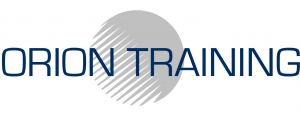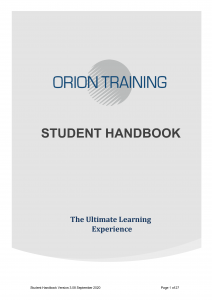Qualification Description
This qualification describes the skills and knowledge required for individuals preparing for entry level work in the agriculture, and conservation and ecosystem management industries.
They undertake a range of simple tasks under close supervision. The range of technical skills and knowledge is limited.
The qualification is suited to VET programs delivered to secondary school students or learners with no previous connection to the agriculture or conservation and land management industries or relevant employment history.
No licensing, legislative or certification requirements apply to this qualification at the time of publication.
Entry Requirements
There are no entry requirements for this qualification.
Units of Competency
Every course is made up of a specific number of core and elective units, this will vary between qualifications. The Packaging Rules specify the exact number of core and elective units that students must complete to finish their chosen qualification and to be issued with a certificate.
The core units are mandatory and every student must undertake the core units listed, however students may be able to choose the elective units that are particularly relevant to them, their employment, or career path.
A unit of competency that has been successfully completed through previous study either with Orion or another RTO, may be eligible for credit transfer. If a credit transfer is applied, students will not be required to study that unit again.
How to Choose Your Elective Units
Orion Training offers a specific selection of elective units of competency. We have identified this selection as those most essential to gain the skills required by industry. They are also the preferred units of the majority of Orion clients and students.
To get started;
Read the Qualification Packaging Rules below to confirm the number of elective units you will need to complete for your chosen qualification. Check the list of electives units provided in this information pack.
You will find that either;
A. The list contains the exact number of elective units required – this means that Orion has pre-selected the electives in consultation with industry and you are not required to make a selection; OR
B. The list contains more elective units than the number specified in the packaging rules – this means that
you will need to select the correct number of electives as stated in the packaging rules.
If you need assistance please contact Orion on 07 3392 7055
Qualification Packaging Rules
To achieve this qualification, competency must be demonstrated in 6 units of competency:
-
- 2 core units plus
- 4 elective units
Elective units must ensure the integrity of the qualification’s Australian Qualification Framework (AQF) alignment and contribute to a valid, industry-supported vocational outcome. The Units of Competency included in this course are as follows:
Qualification Fees and Payments
Orion will provide you with the total costs associated with completing your chosen qualification prior to enrolment. There are no hidden charges in our fees, the price quoted is inclusive of administration costs, textbooks, resources, assessment materials and the issuing of your qualification.
Course Duration
Orion is very flexible with the timeframe for you to complete your qualification, and where possible allow you to structure your study around the demands of your family and work commitments. There are several other factors, which may determine the duration of your course and the time you will need each week to dedicate to your studies.
Core Units
AHCWHS102 Work safely
This unit of competency describes the skills and knowledge required to work safely, including identifying work safety issues, observing safe work practices, participating in workplace safety meetings and following incident emergency response procedures.
The unit applies to individuals who are required to work safely while working alongside a supervisor, exercising limited autonomy within established and well-known parameters. They identify and seek help with simple problems.
NOTES:
- The terms ‘occupational health and safety’ (OHS) and ‘work health and safety’ (WHS) are equivalent and generally either can be used in the workplace. In jurisdictions where the model WHS lawshave not been implemented, registered training organisations (RTOs) are advised to contextualise this unit of competency by referring to existing WHS legislative requirements.
- The model WHS lawsinclude the model WHS Act, model WHS Regulations and model WHS Codes of Practice. See Safe Work Australia for further information.
No licensing, legislative or certification requirements apply to this unit at the time of publication.
Unit sector: Work Health and Safety (WHS)
AHCWRK102 Maintain the workplace
This unit of competency describes the skills and knowledge required to maintain a range of work areas, including preparing tools, equipment and machinery, maintaining a clean and safe workplace and maintaining structures and workplace surroundings.
The unit applies to individuals who are required to maintain the workplace while working alongside a supervisor, exercising limited autonomy within established and well-known parameters. They identify and seek help with simple problems.
All work is carried out to comply with workplace procedures, and health and safety in the workplace requirements.
No licensing, legislative or certification requirements apply to this unit at the time of publication.
Unit sector: Work (WRK)
Elective Units
Pre Selected
AHCBIO204 Follow site biosecurity procedures
This unit of competency describes the skills and knowledge required to follow the workplace biosecurity procedures for accessing and leaving a quarantine site to reduce and contain the transfer of diseases or pests.
The unit applies to individuals who work under general supervision and exercise limited autonomy. They undertake defined activities and work in a structured context.
No licensing, legislative or certification requirements apply to this unit at the time of publication.
Unit Sector: Biosecurity (BIO)
AHCCHM101 Follow basic chemical safety rules
This unit of competency describes the skills and knowledge required to follow instructions and direction for safe handling, storage and use of chemicals.
The unit applies to individuals who undertake a range of defined routine activities alongside a supervisor in most situations. They exercise limited autonomy within established and well-known parameters and identify and seek help for simple problems.
No occupational licensing, legislative or certification requirements apply to this unit at the time of publication.
Unit Sector: Chemicals (CHM)
AHCWRK213 Participate in workplace communications
This unit of competency describes the skills and knowledge required to participate in workplace communications.
The unit applies to individuals who participate in workplace communications while performing routine tasks under general supervision with limited autonomy or accountability.
No licensing, legislative or certification requirements apply to this unit at the time of publication.
Unit Sector: Work (WRK)
Choose One
AHCLSK103 Support livestock work
This unit of competency describes the skills and knowledge required to undertake livestock work under direct supervision and to support the work of others.
The unit applies to individuals who support livestock work while working alongside a supervisor, exercising limited autonomy within established and well-known parameters. They identify and seek help with simple problems.
All work must be carried out to comply with workplace procedures, according to state/territory health and safety regulations, legislation and standards that apply to the workplace, and animal welfare legislation, regulations, standards and guidelines, and sustainability and biosecurity practices.
In addition to legal responsibilities, all units of competency dealing with animals in the AHC Agriculture, Horticulture and Conservation and Land Management Training Package have the requirements for animals to be handled humanely to minimise stress and discomfort.
No occupational licensing, legislative or certification requirements are known to apply to this unit at the time of publication.
Unit Sector: Livestock (LSK)
AHCBAC102 Support agricultural crop work
This unit of competency describes the skills and knowledge required to provide support to others undertaking agricultural crop production activities.
The unit applies to individuals who work alongside a supervisor and undertake defined routine activities. They exercise limited autonomy and identify and seek help with simple problems.
No licensing, legislative or certification requirements apply to this unit at the time of publication.
Unit Sector: Broad Acre Cropping (BAC)
To achieve this qualification, training may be delivered via one or a combination of the following options.
Recognition of Prior Learning (RPL)
Trainees who consider that they are already competent in one or more of the Units of Competence in this qualification have the right to have that competency recognised without participating in a learning process. This pathway requires the trainee to demonstrate current competence or provide evidence of prior learning, including prior completion of units of competency included in the qualification for which Credit Transfer can be granted. Trainees are supported throughout the process by Orion staff.
Work-based Training and Assessment
This pathway involves trainees completing work related training and assessment activities. All work-based training and assessment combines face-to-face and/or online training with self-paced activities to reinforce learning. Trainer visits and student support whilst in their training periods.
Distance Training and Assessment
This delivery mode involves the use of self-paced training manuals to provide the relevant training and assessment tasks. Trainer support will be available by telephone and/or email throughout the duration of the qualification. Completed activities and assessment tasks will be submitted to the trainer via post or email. Student support is also available via email or phone depending on student needs.
Online learning
This delivery mode consists of eLearning system registration via Catapult. This delivery mode involves the use of self-paced online eLearning actives and assessments. Trainer and student support will be available to guide the student through their chosen qualification by telephone and/or email throughout the duration of the qualification. Completed activities and assessment tasks will be submitted to the trainer via post or email.
Classroom
This pathway involves trainees completing work related training and assessment activities with a face a face approach in a classroom-based training facility. Incorporating work-based scenarios, role plays, projects and activities. Trainers will support students through their qualification with the reinforcement of work-based environment.
Mixed Mode
This pathway involves trainees completing work related training and assessment activities utilising combined delivery modes. Delivery options include classroom-based training, one on one training sessions, incorporation of eLearning actives, work-based scenarios, role plays, projects and activities. The trainer and Training Support Co-ordinator will support students through their qualification with the reinforcement of a work-based environment.

